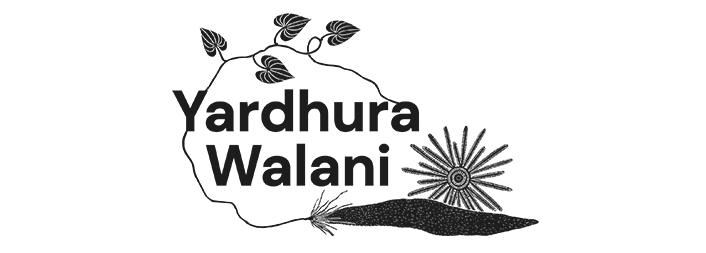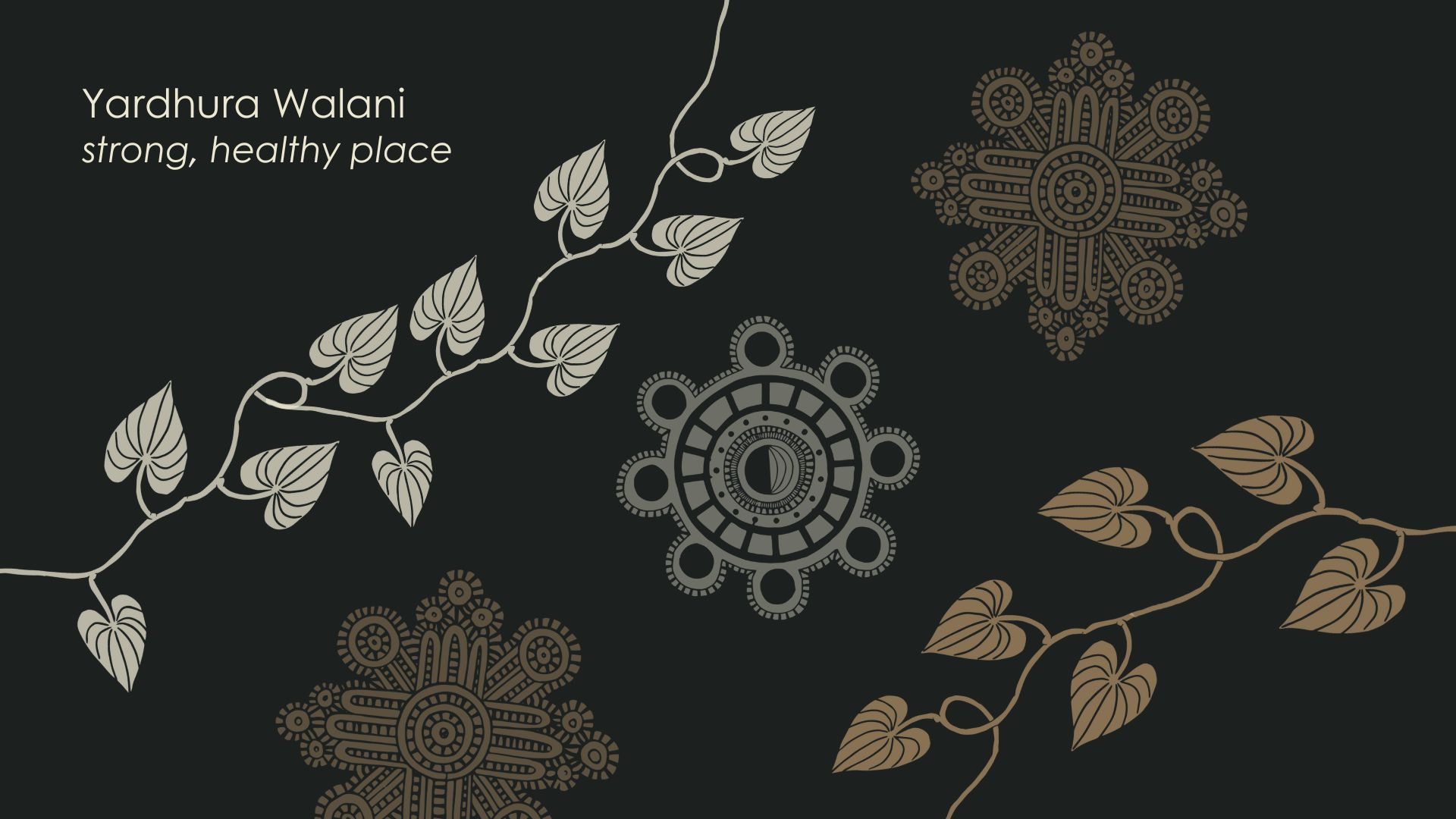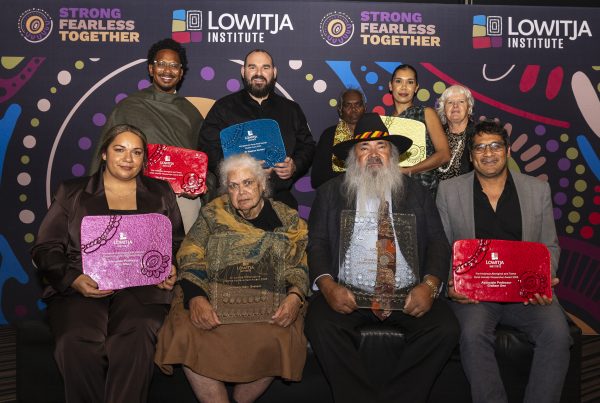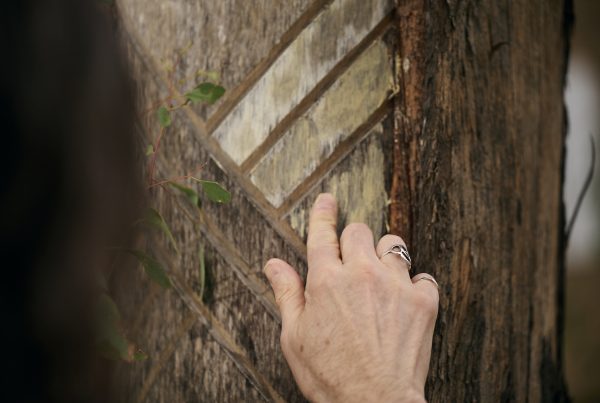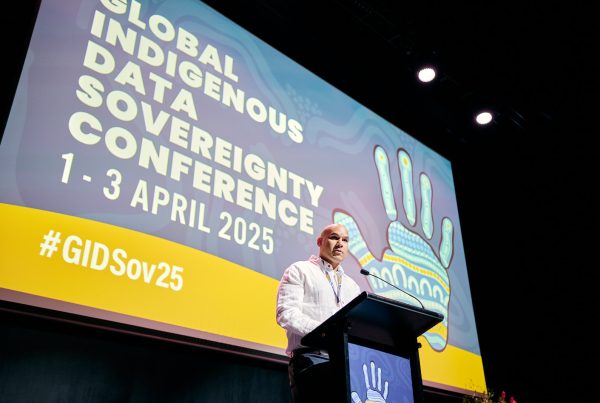Director’s Message
It has been just over a year since we gathered to celebrate coming together as Yardhura Walani, the National Centre for Aboriginal and Torres Strait Islander Wellbeing Research. We were bestowed a name that captures strength, energy, power and it has been such an enormous source of pride to work alongside excellent researchers who strive each day to live up to that gift.
This year has seen our brand well and truly propelled to a global stage as successful co-hosts of the Global Indigenous Data Sovereignty Conference (GIDSov 2025) in partnership with Maiam Nayri Wingara. Known as GIDSov 2025, the gathering brought together Indigenous peoples from across the globe to determine the way forward for Indigenous Data Governance and Indigenous Data Sovereignty aspirations. It was the first of its kind in more than 10 years, and thanks to the growing global community and the power of collective action, we can look forward to biennial gatherings.
Nationally we continue to work in service to communities, with a recent opportunity to translate our important research during fourteen distinct presentations at the Lowitja Institute’s International Health and Wellbeing Conference. The Conference platforms research impact among those we serve – across health systems and workforces, and shares the depth and breadth of our work. Through more than one hundred community partnerships, we continue to build research capacity at grassroots levels, and ensure that our work delivers tangible benefits. Thank you to the many collaborators and partners who shared in research journeys alongside our teams.
Of significance, particularly in light of this year’s NAIDOC theme, is Yardhura Walani‘s growing focus on research that concerns younger Aboriginal and Torres Strait Islander peoples. The What Matters to Kids Study and the Yukaaywa Purrary Study are two unique research projects designed with communities, schools, parents, and kids, that focus on the health, wellbeing and cultural lives of young peoples.
In addition to groundbreaking studies, our 2025 grant success continues with the awarding and commencement of ten grants and consultancies to inform policy and practice at national and regional levels. We have also published over thirty peer-reviewed articles in globally recognised journals. In each of these publications, consultancies and grants, we are able to amplify Aboriginal and Torres Strait Islander peoples’ voices, for more effective responses to health and wellbeing aspirations. Ultimately, we lead a process of ensuring that policies and decisions about Aboriginal and Torres Strait Islander peoples are by us, and for us.
We do not do this alone. On behalf of the wonderful and dedicated researchers contributing their strength and skills to their own families and communities, I express a heartfelt thank you to you for being a part of our journey. In particular, shoutout to Thiitu Tharrmay, our community reference group who guide our work. In this newsletter, I invite you to catch up on what our Centre’s teams have been up to.
Big smiles and thanks
Fiona Cornforth
Rights-seeking, racism and retribution
Yardhura Walani had a powerful start to the year with an article featured in The Lancet Regional Health, which explored how Indigenous people’s right to health is systematically undermined by settler-colonial systems and practices. The article emphasises that eliminating racism is a crucial step toward improving health outcomes and upholding human rights for all peoples.
Heart Health Yarning Tool
The Heart Health Yarning Tool supports health professionals to make shared decisions about heart health with Aboriginal and Torres Strait Islander peoples. It is based on a culturally appropriate model of shared decision making that enables health professionals to take individual values and preferences into account, along with the evidence, to come to a shared decision.
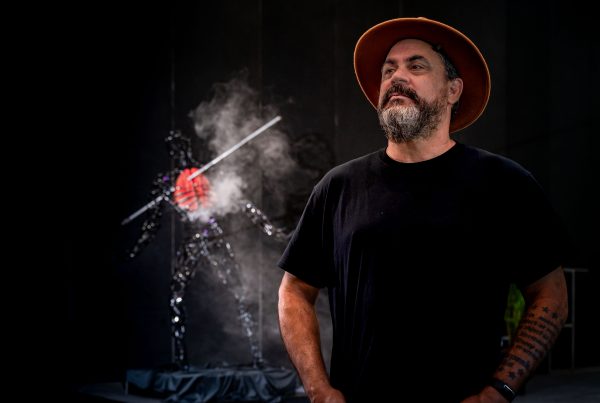
Kilung Morunbul Jum – Death by Smoke
The Kilung Morunbul Jum (Death by Smoke) sculpture by the Left Ear Collective confronts the Tobacco Industry’s deadly toll. With blood-red lungs framed in metal, it speaks to the 66 lives lost everyday and 37% of all deaths among Aboriginal and Torres Strait Islander peoples. This sculpture is a call for truth, justice, and freedom from addiction. Kilung Morunbul Jum travels around Australia and invites people to tell the Tobacco Industry what they think and add their voice to the resistance. For help to quit, see your local doctor, pharmacist, call the Quitline on 13 7848 or download the my Quit Buddy app.
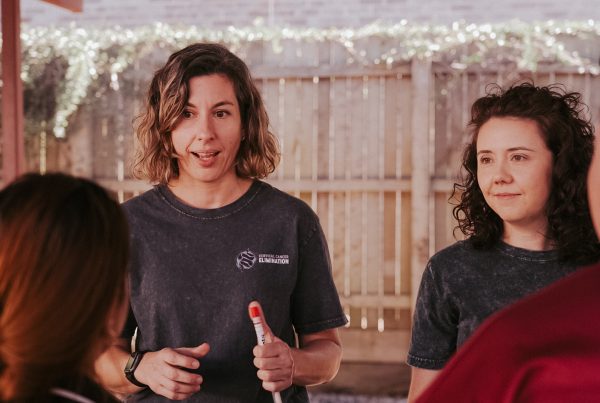
The Screen Your Way project
Screen Your Way is an implementation trial conducted in partnership with seven Aboriginal Community Controlled Health Organisations (ACCHOs) across QLD, NT and NSW. The project aims to increase cervical screening participation within communities, and support services to embed HPV self-collection as part of the National Cervical Screening Program. Partners are implementing these strategies over a 12-month trial period, with support from the project team, while an evaluation assesses their effectiveness and impact, and will contribute to informing national policy and practice.
Student spotlight
This year, the talented 14-strong student cohort at Yardhura Walani have been doing deadly work – from presenting at conferences, to publishing peer-reviewed articles, to conducting community workshops. A special shoutout to student achievements in the past six months:
- Rebecca Murray and Khwanruethai Ngampromwongse were awarded scholarship/travel grants from the Maali Hub at the University of Melbourne.
- Dean Pousini-Hilton won the Vice Chancellor’s HDR travel grant and the Australasian Epidemiological Association Indigenous members award.
- Antoinette White has completed her MAE with her thesis titled: Relational Care and Wellbeing: Applied Epidemiology in Aboriginal Community Controlled Health Settings
- Bobby Maher has submitted her PhD thesis titled: Moort danjoo kanyirninpa (relationality) and Boola kaadadjan doyntj doyntj baranginy (Indigenous knowledge exchange) as Collective Capability within Indigenist Evaluation in Australia
Connect with us and receive updates about the Centre. Subscribe to our newsletter here.
